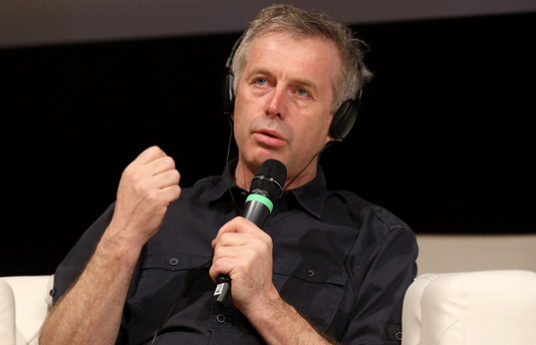‘The more local your film, the more universal it is,’ says Qumra Master Bruno Dumont
Mar 05, 2017

Doha, Qatar; March 5, 2017: Qumra Master Bruno Dumont, delivering his Master Class at the third edition of Qumra, the industry event by the Doha Film Institute, urged emerging filmmakers to push the boundaries of reality, reminding them that the ‘more localized’ their stories, the ‘more universal’ they become.
In a talk defined by the intense philosophical and spiritual outlooks that have shaped the avant-garde French filmmaker’s life and works, Dumont emphasized that studying philosophy (Greek and German) enables him as a filmmaker as ‘it is the reason and rationale, based on which we separate things.”
By shaping the dimensions of ‘being’ and ‘non-being,’ philosophy drives him in his character sketches, as “philosophers are people who have probed human nature.” That is why he sees the role of cinema as a “spiritual experience’ and film as a “natural art.”
He believes in the interconnection of landscape and human beings, and uses nature as a real tool in his filmmaking. “When you apply the characters in a landscape, a scene comes along; that is why I seek a landscape that I can tell a story about, because it helps to present the ghostly expression of good and evil, of mystique and mystery.”
Dumont had an eager audience at Qumra, emerging talents who have been passionately following his films, and who tossed at him questions ranging from his notions of philosophy to specific ‘behind-the-scenes’ of some of his landmark films.
They also probed him on his work with professional actors of late, having earlier preferred to work with non-trained people. Dumont says the key in working with professional actors is to ‘dehumanise them and make them look deep into themselves to become real characters. Direct them, always, as non-professionals and you get excellent results,” he told the audience.
To a question on political influence in his cinema, Dumont said that politics is not his speciality, adding that “politics influences our sensibility to art.’ Ultimately, it is about how art and cinema enables “us to accept each other because cinemas shows us in relation to one another.”
Dumont narrated his journey in cinema, starting first with studying and teaching philosophy, shooting industrial films, and going on to learn cinematography, editing and scripting. When he ventured into fiction-filmmaking, he found it impossible to work with established actors. “So I worked with non-actors and found the work was smooth.” He narrated how he used editing tools to get non-real-time reactions to action shots, especially when his acting crew were not comfortable with some scenes.
He says over the years he gained a stronger understanding and courage as a director, and is ready to follow austere measures on the sets to support his producers. Dumont understands that films are dense “and does not have to appeal to all; you cannot make a film to please all. Accept that some people do not love your films, and leave it at that.”
Dumont’s film L’il Quinquin (France/2014) was screened at Qumra 2017 as part of the Modern Masters Screening. He will take part in mentoring sessions with the talents of the selected Qumra Projects.
Qumra hosts leading international filmmakers, producers, industry experts and professionals, for intense brainstorming, knowledge-sharing and nurturing sessions with talents associated with 34 films from 25 countries. Directors and producers attached to 18 narrative feature films, 7 feature documentaries and 9 short films are participating in the event being held until March 8 at Souq Al Waqif and the Museum of Islamic Arts.
New this year are the Accredited Delegates Programme, developed for professionals from diverse backgrounds which will allow 100 local and regional delegates to access more opportunities and be a part of the platform for discovery, and ‘Qumra Talks’, a series of three specially curated discussions that gathers leaders from the technology, film, TV and online worlds to share their insights on trending topics impacting the international film industry.